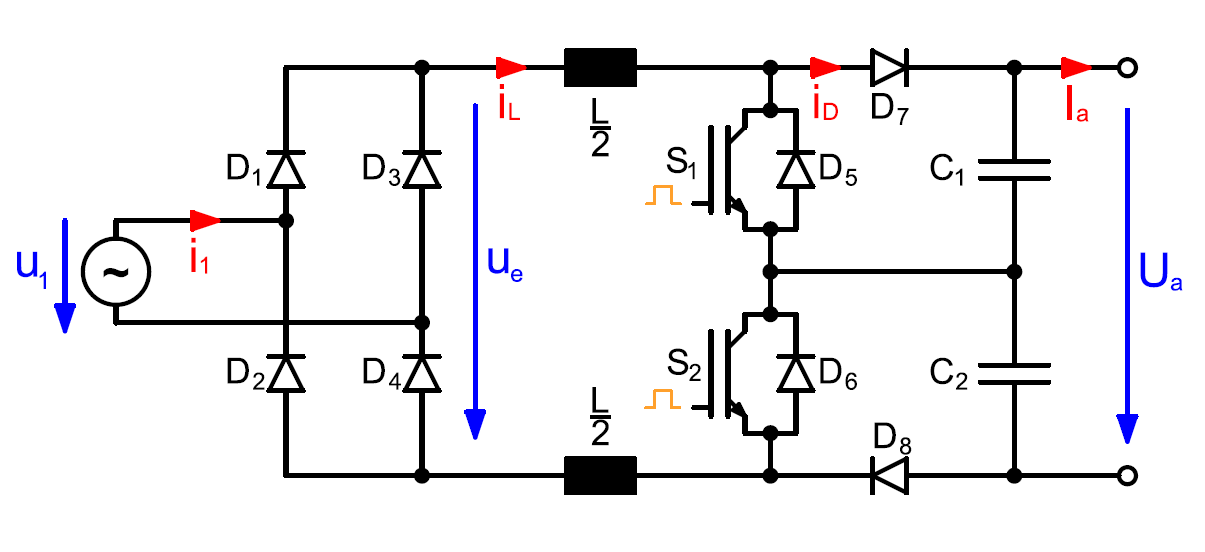- 2E-Mobility Center
- 3Engineering-Library
- 4Auditorium Tech Stage
- Rail OEM - Serial Production of PowerBriX
- PowerBriX - Launch of Medium Power
- Rail OEM - Introduction
- APU - The Heart of the Train
- Rail Services - Introduction
- PowerBriX - 100% Modular Architecture
- PowerBriX - Interview on Product Strategy
- Welcome to PowerTech City
- PowerTech Converter - A company of smart solutions
- 5Eco-X Space
- 6Exhibition Grounds
New Master of Science - Maximilian
MASTER THESIS - A CIRCUIT FOR POWER FACTOR CORRECTION FOR AN AUXILIARY CONVERTER
 Max Maier
Max MaierMAXimilian joined powertech in 2019 as a student in power Electronics. In the beginning he worked in our validation team and switched to the electrical engineering design team after his master thesis.
In the beginning this master thesis was started to create an electrical and thermal simulation model in Matlab-Plecs for the design of a special input stage of an auxiliary converter.

The challenge was to create a model that delivers highest accuracy of simulation results to guarantee the safe operation of the semiconductors. A clear cost saving and optimization measure for PowerTech.
The input stage is designed for an AC connection of the auxiliary converter to the power supply system. In order to avoid thermal overload of the supply network and the upstream transformer, a power factor correction must be provided within the input stage. Power factor correction has been achieved by using a B2 bridge and a three-level boost converter.
The validation of the simulation was achieved on a prototype in the company’s electrical laboratory. The prototype has a power of 20kW. For the thermal simulation model the considered semiconductors are measured in a double-pulse test rig and the calculated loss energies are transferred to Matlab-Plecs as a function of current and voltage in tabular form.
The results of the measurements on the prototype deviated only slightly from the simulation results. The mean discrepancy between the thermal results of simulation and measurement on the semiconductors was less than five percent. The error between the simulated and measured power factor and efficiency was less than one percent. In the last section of this thesis an input stage for an auxiliary converter with a higher power of 160kW is designed by simulation.
Maximilian Maier, Electrical Engineer
PTC Rail OEM GmbH.

